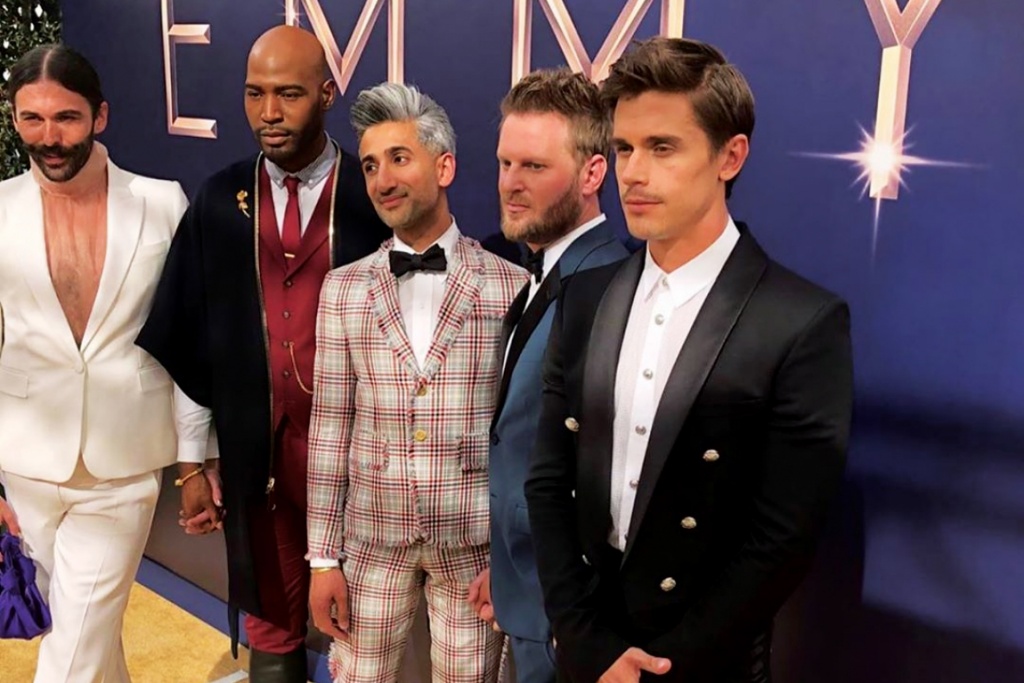The 71st Primetime Emmy Awards brought the plight of women and LGBTQ into the limelight with some powerful speeches by beloved stars.
When Billy Porter was announced as winner of the Emmy for Best Lead Actor in a Drama Series, he ran up onto the stage. Porter stars in “Pose,” which details life in the Black and Latinx ballroom culture in New York City in the 1980s and 90s during the AIDS pandemic. Reprising his role of Pray Tell, Porter said, “The category is love y’all, love.”
Then he quoted James Baldwin. “‘It took many years of vomiting up all the filth that I had been taught about myself and halfway believed before I could walk around this Earth like I had the right to be here.’” Porter added, “I have the right, you have the right, we all have the right.”
The crowd cheered and gave him a standing ovation.
Porter is the first openly gay Black man to win an Emmy for lead actor.
Actress Patricia Arquette, a long-time LGBTQ ally, won for Outstanding Supporting Actress. Arquette is known for her activism for causes for women and other groups, so it was not unexpected that she would use her platform to highlight her activism. After shouting out her fellow nominees and thanking Hulu and her family, Arquette spoke to the grim plight of trans people in America who are at risk for violence and discrimination.
It’s a deeply personal concern for Patricia Arquette. Arquette’s sister, Alexis, transitioned in 2004 and died in 2016 of HIV-related causes. Alexis was a well-known champion of other trans women and men and was the subject of the 2007 documentary “Alexis Arquette: She’s My Brother.”
In her speech, Patricia Arquette said, “I’m grateful at 50 to be getting the best parts of my life. And that’s great, but in my heart, I’m so sad I lost my sister Alexis and that trans people are still being persecuted.”
The crowd was hushed as she continued, “And I’m in mourning every day of my life, Alexis, and I will be the rest of my life for you, until we change the world and trans people are not persecuted.”
Patricia Arquette, who spoke out for pay equity for women when she won the Oscar in 2015, continued, “And give them jobs. They’re human beings, let’s give them jobs. Get rid of this bias that we have everywhere. Thank you.”
It was a deeply moving tribute, particularly given that the Trump administration just filed an amicus brief urging the U.S. Supreme Court to rule in favor of discriminating against gay and trans workers in employment, as PGN previously reported.
Arquette received a standing ovation, led by trans actress Laverne Cox who was the first to leap to her feet applauding Arquette’s poignant plea in her sister’s memory. Cox held a rainbow clutch with “October 8th Title VII Supreme Court” written on it.
There were some other powerful moments. Michelle Williams, who won Outstanding Lead Actress in a Limited Series for her extraordinary performance as Gwen Verdon in “Fosse/Verdon” spoke about equal pay for women and called attention to disparities for Black women.
Alex Borstein, who plays sexually ambiguous Susie Myerson in “The Marvelous Mrs. Maisel,” dedicated her Emmy to her mother and grandmother, both Holocaust survivors. Borstein told her grandmother’s survival story. “My grandmother turned to a guard — she was in line to be shot into a pit — and she said, ‘What happens if I step out of line?’ And he said, ‘I don’t have the heart to shoot you, but somebody will.’ And she stepped out of line. And for that I am here and for that my children are here.”
Borstein paused as the audience applauded, then said, “So, step out of line, ladies, step out of line.”
These passionate messages demanding acknowledgment of women and LGBTQ people are critical. None of this should need to be said in 2019, but it does. Williams was slated to be paid just 1 percent of her male co-star in a scandal revealed last year. Arquette knows that trans people don’t get enough work in part because it was so hard for her sister to get work. Porter profusely thanked “Pose” creator Ryan Murphy in his speech. Murphy is an out gay showrunner who has built many of his series around LGBTQ actors as well as actresses over 50. Murphy has also committed to having 50 percent of his series directed by women. And “Pose” is the first primetime series written and directed in part by a trans woman, Janet Mock.
Emmy night had moments of real power and deep emotion. For those of us queers and women in the audience, these were shoutouts to our humanity and worth. Borstein’s message was the most chilling: if we don’t step out of line, if we don’t, as Porter quoted Baldwin, refute the messages we’ve been taught, our very lives are under threat. These were more than just speeches, they were dictates to society. We are here, and we will be stepping out of line for ourselves and those we love. n
